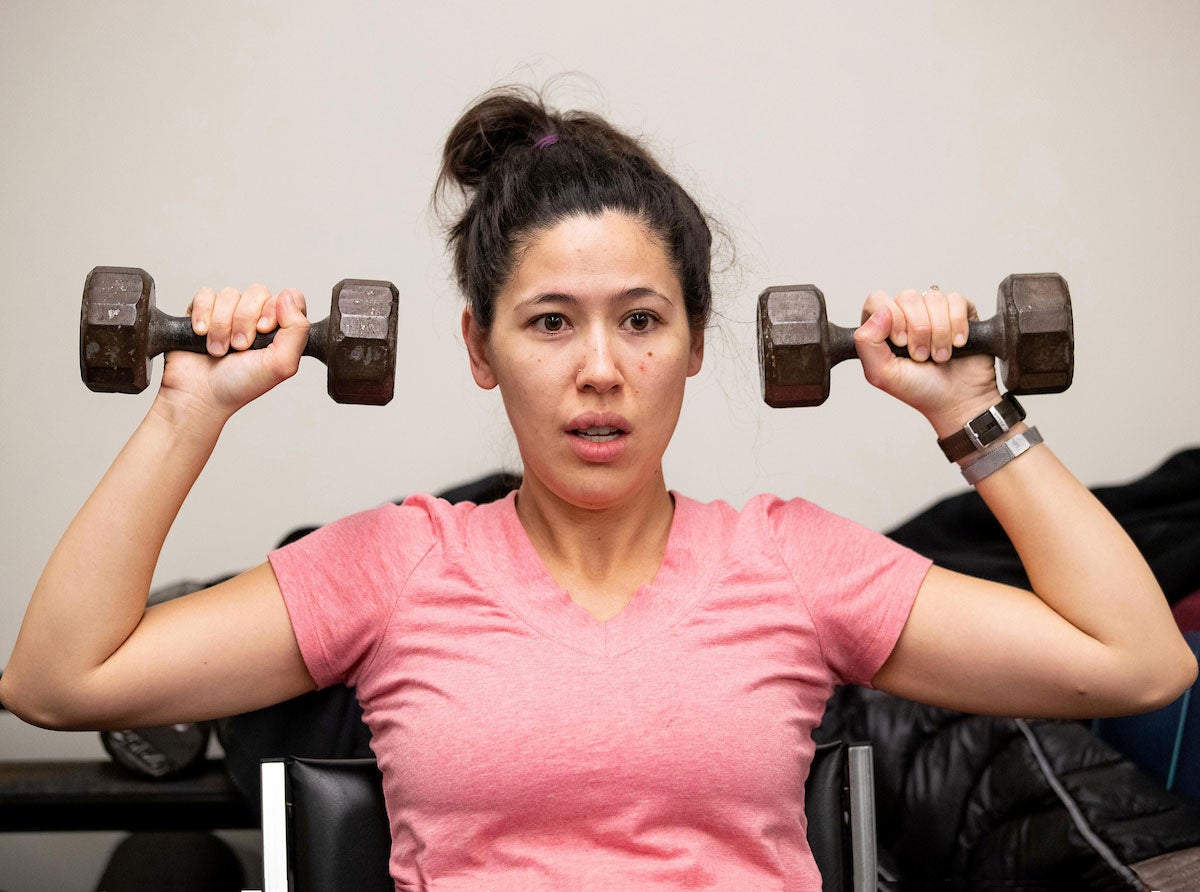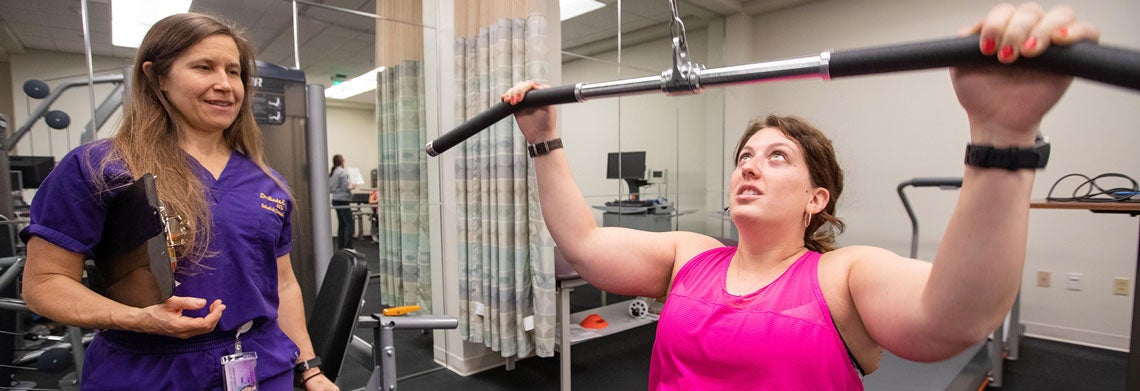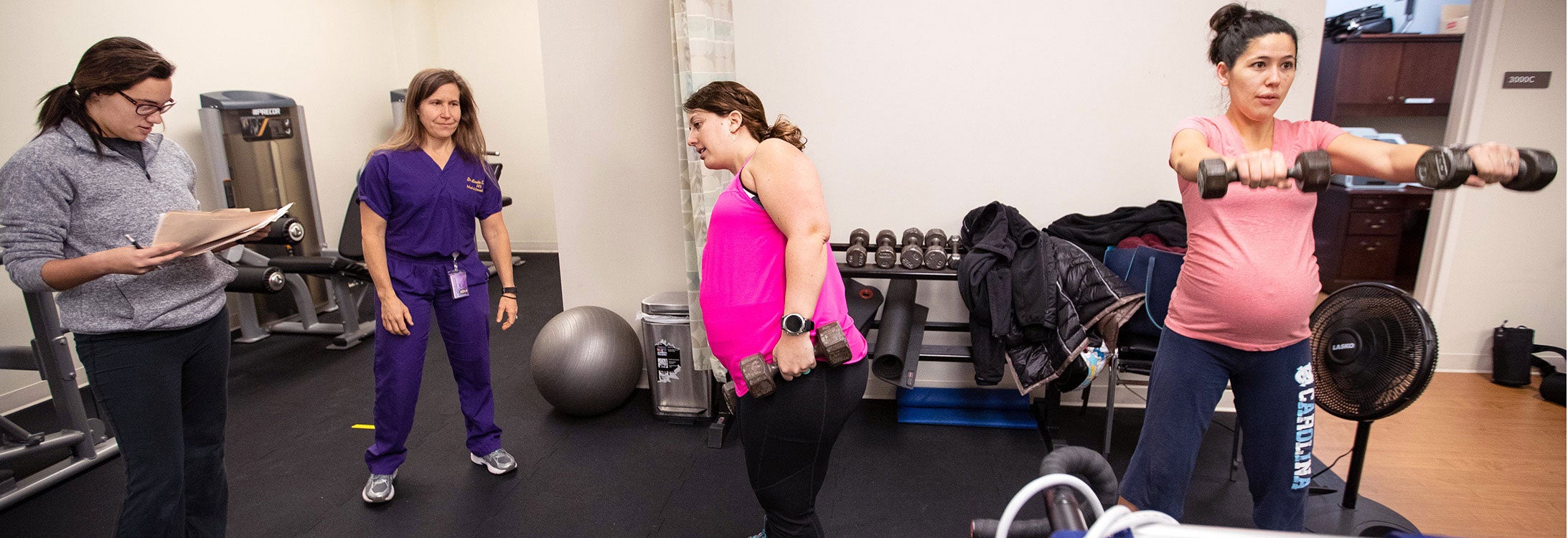MATERNAL EXERCISE STUDY
Is exercising while pregnant good for babies? Pioneering ECU research could provide answer
A researcher at East Carolina University’s School of Dental Medicine was recently awarded a grant from the American Heart Association (AHA) to continue her groundbreaking study of the effects that exercising while pregnant has on babies.
The funding through the AHA’s Innovative Project Award will provide Dr. Linda May, an associate professor in the Department of Foundational Sciences, a total of $200,000 over the next two years to provide physical training to pregnant women and then measure the outcomes for the infants.
While research documenting the positive health benefits of exercise for pregnant women is nothing new, May – who is a mother herself – said she was the first researcher to ask the question, “Does baby benefit from mom’s exercise?”
This question is particularly important, May said, considering the current childhood obesity epidemic in the United States. According to the most recent data from the Centers for Disease Control and Prevention (CDC), more than 18 percent of children and adolescents in the nation – or about 13.7 million – are obese.
These children are more likely at higher risk for serious health problems such as cardiovascular disease, diabetes, breathing issues, joint problems, fatty liver disease and psychological problems.
“So far we’ve seen benefits, so the babies actually are healthier from the mom’s exercise during pregnancy,” May said. “We want to continue that research and see, ‘How healthy are they?’ Is it just heart measures, body composition measures? Is it also neuromotor measures – are they not only leaner, but are they better movers? We want them to be healthy and we want them to be good movers as well as lean.”
Nearly two dozen pregnant women are currently taking part in the study, which expects to enroll about 200 participants throughout the duration of the grant.
Most of the participants in the “ENHANCED By Mom” project are recruited from local OB-GYN offices before they are 16 weeks pregnant. The exercise program — which is free of charge for the participants — begins around 16 weeks and then continues until they deliver.
The participants do not choose what workout programs they take part in; rather, a computer randomly assigns them into different exercise groups. Some of the women take part in more aerobic-type activities while others focus on toning and strengthening-type workouts. Some of the moms-to-be are assigned to a combination of those workouts, while others do more yoga and stretching exercises.
“As soon as a woman is pregnant, she wants to do is everything she can to make sure her baby is healthy. Maybe they want to do exercise, but they don’t know what to do,” May said. “We can make sure that they’re doing the appropriate exercises – not only for them, but for their baby – and that they’re doing them in a healthy way.”
After delivery, the participants are asked to return periodically – until the child turns a year old – so staff can get measurements of the child. The AHA grant mostly helps to fund the processing of blood samples drawn from the mothers and babies.
“We take a look at the different hormones and markers to see if we can not only show that babies are healthier, but that they also have a decreased risk for things like heart disease and obesity later in life,” May said.
Greenville resident Jodie Messimer, a 29-year-old nurse who is pregnant with her first child, said she decided to take part in the program because she was not at an ideal weight prior to getting pregnant, so she knew she’d be at risk for issues like gestational diabetes or preeclampsia.
After enduring a tough hour-long workout that started at 6:30 a.m. on a frigid December morning, a 23-weeks-pregnant Messimer was all smiles before heading to work for the day.

Lei Grigg performs a shoulder press during a prenatal exercise study at East Carolina University.
“During pregnancy you’re exhausted – all the time. But I know that working out brings out endorphins and I feel 10 times better when I work out,” she said. “The workouts are pretty intense and they go up on your weights, but they go off of your comfort and everything too. So it’s nice to know that you’re being supported and you’re not going to hurt yourself. That was one of the things I was concerned about being pregnant. I didn’t want to work out without being monitored.”
Messimer said she would definitely recommend the program to other expectant mothers, but she hopes her baby girl will be the one to benefit the most from the extra work she is putting in while pregnant.
“I am trying to be healthy for her and I hope it inspires her to be healthy too,” she said.
Leia Grigg was never interested in working out prior to getting pregnant.
But after her husband, William, an ECU student, told her about the positive outcomes coming out of the “ENHANCED By Mom” program, the 29-year-old high school teacher signed up for the program, meaning she would have to work out at least three days a week.
At 30 weeks pregnant with her first child, Grigg recently spent an hour doing an exhausting strength-training workout before heading to work.
“It’s absolutely worth it knowing that my baby will be healthier,” she said. “Prior to this I would’ve gone out and walked occasionally, but I definitely wouldn’t have been weightlifting. So this has really broadened my horizons in terms of my own health, but I feel like it’s also going to make me a better mom.”
Grigg said May and her staff of graduate students and interns provide a “positive and supportive environment” that she hopes will produce strong enough outcomes to enable the program to help mothers and children nationwide.
“One of the reasons we have to exercise is for the future. Sometimes it’s hard when it’s cold and it’s dark and you’ve got a million other things to do, but you get out of bed because you know it’s what you need to do,” she said. “And I was doing that so (my child) would have all of those health benefits before (he or she) was even born.”

Dr. Linda May monitors Jodie Messimer’s form during a prenatal exercise class at the East Carolina Heart Institute.
